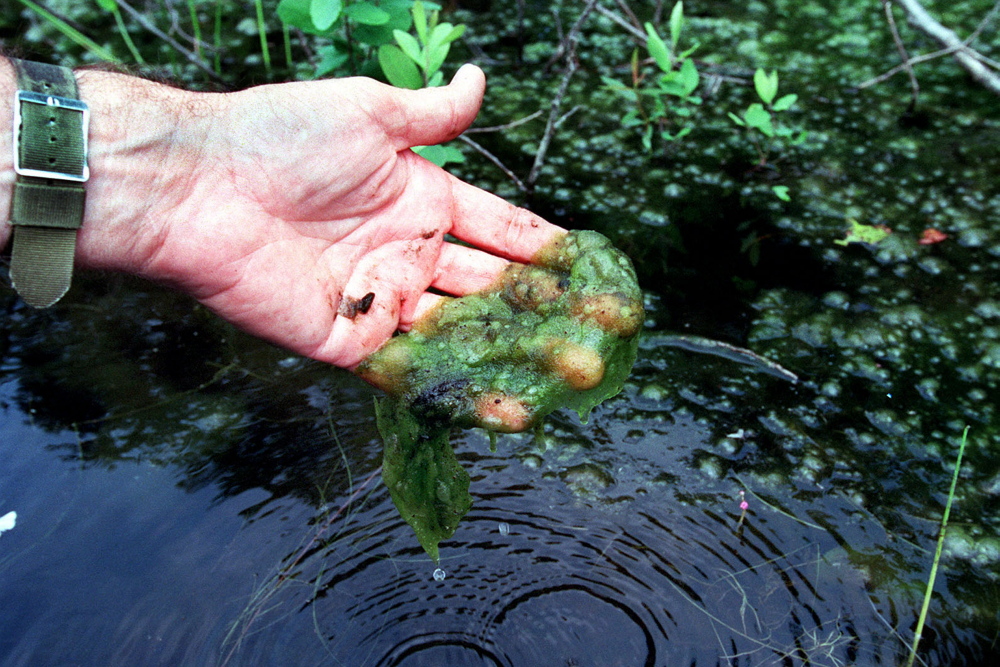PORTLAND — Now that spring has finally come, I’m dreaming of a swim in the lake, and am reminded of a visit by a friend from the Czech Republic who came with me to a pond in Maine a few years ago.
When he stepped into the water, he said, “This is the clearest water I’ve ever seen. I can see my feet.”
In the countries of Central and Eastern Europe, little attention had been paid to clean air and water for decades. I had lived there myself and remembered visiting a lake where everyone was enjoying a swim.
But the water was a murky, dark brownish-green, and I was unwilling to put my legs in it, much less my face.
Czech people are very proud of their country for lots of good reasons, but at that time, many had little experience beyond their own borders, and this kind of lake water was considered normal.
MAINE WATER QUALITY STANDS OUT
I thought about that experience recently when I read about L.D. 1744, a proposal before the Legislature to protect Maine lakes.
Maine still stands out among the states because we have some of the clearest lake water in the country. People move here or visit here to find lakes where they can lie on a dock and watch the fish underneath, where they can feel clean after a swim and where the water really sparkles in the sunlight.
There is still water like that in much of Maine, but things are changing; there is more construction near our prized resources, so we must work harder to protect them.
A number of Maine’s lakes have been identified as “impaired,” meaning they probably resemble the Czech lakes I saw. According to the Natural Resources Council of Maine, many are at a “tipping point that could result in rapid loss of water quality.”
These conditions are extremely difficult and costly to reverse, and they seriously affect property values and tourism and the experience of all of us who enjoy our lakes.
Many more ponds and lakes are on the Maine Department of Environmental Protection’s watch list because of development pressures.
Tourists and businesses that can create jobs will come here if we can protect our natural resources and keep Maine a distinctive and beautiful place. Our 5,785 lakes are an incentive if they remain blue and sparkling.
To keep our lakes clear, we can restrict use of fertilizer, keep roads well maintained to reduce runoff, preserve a good buffer of land planted with trees and bushes between buildings and the lakes, and maintain good shoreland and wetland zoning to preserve an important margin between certain human activity and streams and lakes.
All of these will make a difference, especially when our climate is warming, making conditions more favorable for algae growth and invasive plants.
Maine, for me, has always meant an escape from the billboards, clogged roadways, acres of concrete and cloudy waters farther south. I imagine that many of the people reading this have come here or stay here for the same reason.
CLEAR LAKES ARE WORTH PROTECTING
It’s easy to assume that Maine will always be this way, that our lakes will always be shining, and will continue to provide safe habitat for fish and loons and herons.
It’s human nature to take our environment for granted.
But as I learned in a country where the natural landscape had been neglected, lakes can easily turn into breeding grounds for slimy algae or mats of invasive plants.
People are attracted to water because we love to swim, fish and boat in it.
But its natural clear shimmering beauty also provides a soothing vision that heals anxieties and can relax an overwrought mind.
Let’s keep our lakes a restorative resource where, when we put our feet into the water, we can still see them.
— Special to the Press Herald
Send questions/comments to the editors.



Success. Please wait for the page to reload. If the page does not reload within 5 seconds, please refresh the page.
Enter your email and password to access comments.
Hi, to comment on stories you must . This profile is in addition to your subscription and website login.
Already have a commenting profile? .
Invalid username/password.
Please check your email to confirm and complete your registration.
Only subscribers are eligible to post comments. Please subscribe or login first for digital access. Here’s why.
Use the form below to reset your password. When you've submitted your account email, we will send an email with a reset code.